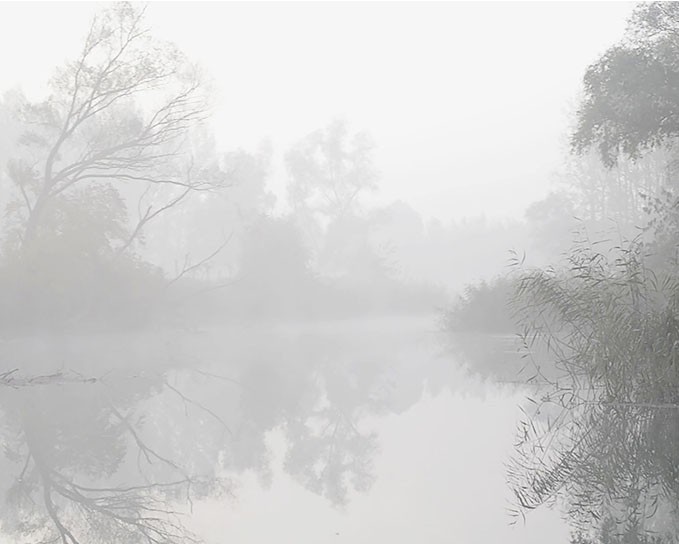
POLITICISED LANDSCAPES
A series of collateral events about environmentalism and civil society will be organised at Galeria Centralis throughout the exhibition period.
Please click on the particular events for further information / event documentation.
28 April 2016
Finissage
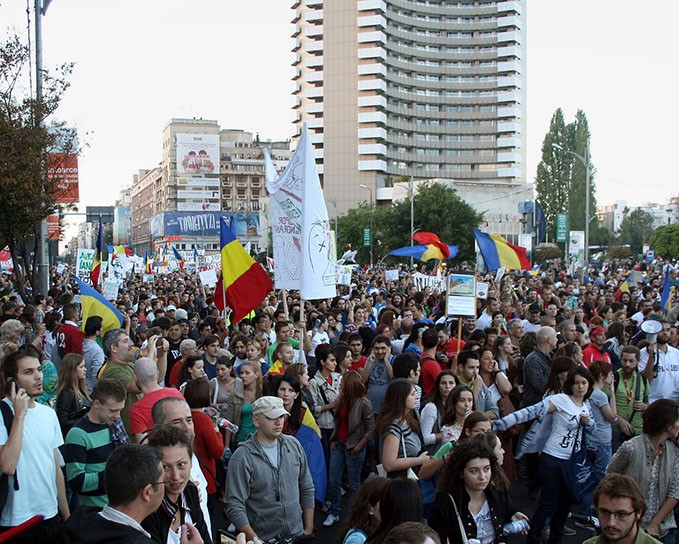
Friday, 18 March 2016, 6:30 p.m.
TAMARA STEGER
(CEU, Environmental and Social Justice Action Research Group)
What Happened to Environmental Justice?
Transition and Transformation in Central and Eastern Europe
Presentation and talk with Axel Braun
Galeria Centralis of Vera and Donald Blinken Open Society Archives
Arany János utca 32, 1051 Budapest
An event of the POLITICISED LANDSCAPES program.
Tamara Steger's presentation contextualizes environmental justice in CEE under state socialism leading up to 1989 and during post-socialist transformation with EU enlargement and the introduction of multi-party parliamentary regimes and liberalization driven by a neoliberal framework (e.g., privatization and marketization). Almost 20 years after the collapse of the former Communist Party based regimes, Central and Eastern Europe has become part of the global market and struggles for environmental justice that once confronted the former Soviet-style “massive industrialization project” under state socialism are now confronted with the complexity of various alliances puppeteering financialization mechanisms associated with domestic and international capital and the political parties assumed to represent their interests.
ABOUT ENVIRONMENTAL JUSTICE
An environmental injustice exists when members of a disadvantaged, ethnic, minority or other groups suffer disproportionately at the local, regional (subnational), or national levels from environmental risks or hazards, and/or suffer disproportionately from violations of fundamental human rights as a result of environmental factors, and/or denied access to environmental investments, benefits, and/or natural resources, and/or are denied access to information; and/or participation in decision-making; and/or access to justice in environment-related matters .
(Steger, T. (ed.) (2007). Making the case for environmental justice in Central and Eastern Europe. Brussels: Central European University, Center for Environmental Policy and
Law (CEPL), (Budapest, Hungary) & the Health and Environment Alliance (HEAL).: 10).
ABOUT TAMARA STEGER
Tamara Steger is an Associate Professor in the Department of Environmental Sciences and Policy at Central European University (CEU) in Budapest, Hungary. She is the founder of the Environmental Justice Program (est. 2003) of the Environmental and Social Justice Action Research Group (ACTJUST) at CEU. Her work has involved pioneering case study research on environmental justice in Central and Eastern Europe (CEE), and articulating a policy and legal oriented framework for promoting environmental justice in CEE. She has also been involved in social movement research on the OCCUPY movement, the anti-fracking movement, Critical Mass, and Climate Justice.
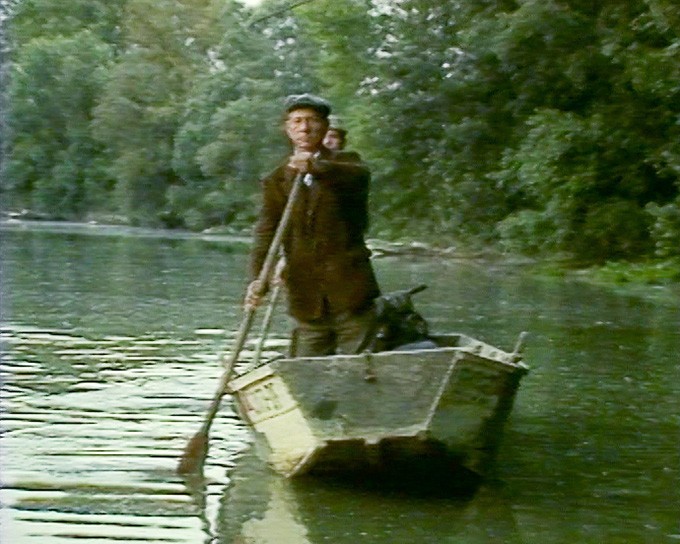
Wednesday, 23 March 2016, 6:30 p.m.
Filmscreening: Ádám Csillag “Dunaszaurusz” (1988)
Talk with János Vargha, Moderator: Szilvia Nagy (in Hungarian)
The film is shown in Hungarian with English subtitles. The discussion will be in Hungarian.
Galeria Centralis of Vera and Donald Blinken Open Society Archives
Arany János utca 32, 1051 Budapest
An event of the POLITICISED LANDSCAPES program.
The film Dunaszaurusz (Dunasaur) presents the problems concerning the Gabčíkovo-Nagymaros Dam System and the failure of the dictator system in Hungary. The film investigates the impacts of the power plant and interviews scientists and illegally-organized, environment activists in order to gives a dramatic account of ecological and social problems as well as the courageous actions of civil society prior to the regime change. The film was elected the best documentary by critics in 1988.
Between 1984 and 1988 the media was banned from covering the construction of the dam system, and the film, Dunasaur was banned too, which prevented the entry into the annual film festival competition. Yet, after it was shown to parliamentary representatives and an audience of several hundred, the Environmental Committee of the Parliament successfully convinced the Prime Minister that the construction should be stopped. Upon pressure from society as well as a court ruling, the film was eventually shown on TV in 1989. Thereafter Dunasaur became a widely used name for the Gabčíkovo-Nagymaros Dam System in Hungarian and international politics and journalist jargon.
Csillag Ádám
Ádám Csillag is an outstanding Hungarian documentary filmmaker. He graduated from the University of Theater and Film Arts in Budapest in 1984 and has worked ever since as a documentary filmmaker. He first worked at the Balázs Béla Stúdió, where he made his token documentary, Dunasaur. From 1989 he worked for Hungarian Television, including filming the Velvet Revolution in Prague. From 1990 he participated in the MTV Opál productions in developing programs on human rights, minorities, and social issues for television. Ádám Csillag is a member of the Ethics Committee of the Association of Hungarian Film and TV Artists, and is also on the Board of Duna Kör.
János Vargha
Vargha is an environmentalist and a photographer. He graduated in 1977 from the József Attila University, Szeged, with a Master’s degree in biology. Since 1981 he has regularly published articles and delivered lectures about environmental issues of water management and construction. He is a founder of the Danube Circle, the first independent, environmental, protest group in the former communist bloc, recipient of the Right Livelihood Award, the alternative Nobel-prize in 1985. In 1990, he was awarded with the Goldman Environmental Prize. He is the editor of a book published in 1997 about the decision of the International Court of Justice in the Gabčíkovo-Nagymaros hydropower project’s case, and also the author of the chapter about hydropolitics. From 1998 till 2000 he was the chief environmental advisor of the Hungarian government.
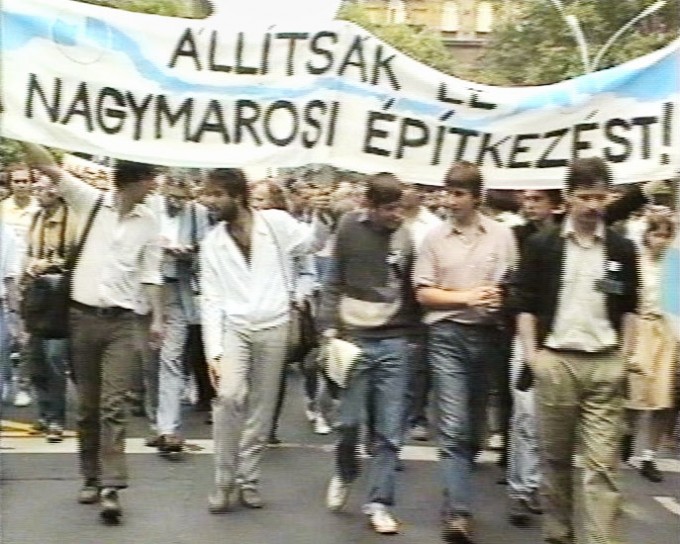
Wednesday, 30 March 2016, 6:30 p.m.
Filmscreening: FEKETE DOBOZ “A Műtárgy” (The Object) (1988)
Márta Elbert (Fekete Doboz, director) in conversation with Ádám Csillag (documentary filmmaker), Moderator: Szilvia Nagy (in Hungarian)
The film is shown in Hungarian with English subtitles. The discussion will be in Hungarian.
Galeria Centralis of Vera and Donald Blinken Open Society Archives
Arany János utca 32, 1051 Budapest
An event of the POLITICISED LANDSCAPES program.
The second issue of Fekete Doboz' video journal, The Object (vol. 1, issue 2),
will be screened for the first time with English subtitles.
The Black Box video workshop was founded by Judit Ember, Márta Elbert, István Jávor, András Lányi and Gábor Vági in 1987. The documentary video journal produced its samizdat publications on VHS. As a civil organization they followed the events of the regime change and the National Round Table Negotiations.
The documentary, filmed in the summer of 1988, shows the first mass demonstration against the Bős-Gabčíkovo Dam System, the transformation of the beautiful Danube landscape into barren desert, the efforts of archeologists to save artifacts before the fields were to be flooded, and an interview with Professor Béla Lipták who argues against the dam’s construction.
Before the film there will be a discussion with Márta Elbert and Ádám Csillag on the documentation of political and social events in the past and present, the documentarist-activist approach and the role of un-copyrighted photos and films in democratic movements and free speech.
MÁRTA ELBERT
After working for 20 years as both unit and production manager, Elbert became one of the founding editors of Black Box, which provided the most important video-documentary workshops on the political and social events during the regime changes in Hungary and Eastern Europe. She was the editor of the five-part film compiled from the recordings of the Oppositional and National Round Table negotiations. She was the editor, reporter and producer of close to 130 Black Box films as well as the founder of the Roma Media School where she taught too. She was awarded the Pulitzer Memorial Prize.
ÁDÁM CSILLAG
Ádám Csillag is an outstanding Hungarian documentary filmmaker. He graduated from the University of Theater and Film Arts in Budapest in 1984 and ever since he has worked as a documentary film maker. He first worked at the Balázs Béla Stúdió, where he made the successful documentary, Dunasaur. From 1989 he worked for Hungarian Television, where he filmed the Velvet Revolution in Prague. Csillag participated in the MTV Opál Productions in 1990, developing programs on human rights, minorities, and social issues for television. Ádám Csillag is a member of the Ethics Committee for the Association of Hungarian Film and TV Artists, and he is also on the Board of Duna Kör.
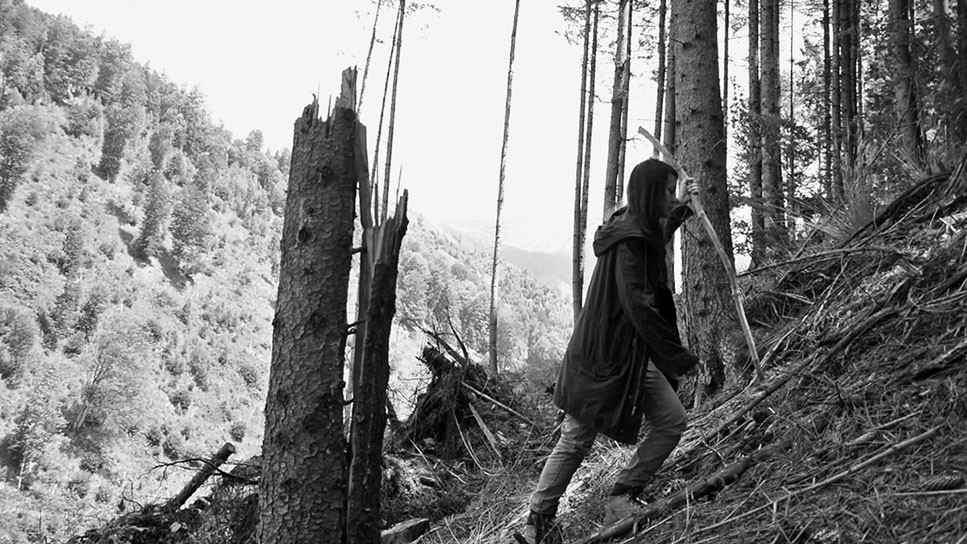
Thursday, 31 March 2016, 6:30 p.m.
MAJA & REUBEN FOWKES
[Translocal Institute]
Walking without Footprints
Presentation and talk with Axel Braun
Galeria Centralis of Vera and Donald Blinken Open Society Archives
Arany János utca 32, 1051 Budapest
An event of the POLITICISED LANDSCAPES program.
To walk in the landscape today is to do so with awareness of the anthropogenic transformation of the natural world, while walking in the urban environment synchronises the rhythm of our steps with the great acceleration of the high-tech city. This talk investigates how in today’s twenty-four seven culture, where minimising time and maximising speed is a prerequisite, the choice to move through the world at a pace of five kilometres an hour could create the conditions to reconnect with ecological realities. The exhibition Walking without Footprints considered artistic practices that address walking as a strategy to rethink our relationship to the natural environment and devise exquisite tactics for uncovering new vistas of the overbuilt city. It was conceived as an invitation to experience walking both as an engaging and political, as well as a contemplative and liberating activity that holds out the promise of bringing us an inch closer to a more ecological existence.
ABOUT MAJA AND REUBEN FOWKES
Drs Maja and Reuben Fowkes are art historians and curators who work out of Budapest and London. They are founders of the Translocal Institute for Contemporary Art, a centre for transnational research into East European art and ecology based in Budapest that operates across the disciplinary boundaries of art history, contemporary art and ecological thought. Maja Fowkes is the author of The Green Bloc: Neo-Avant-garde Art and Ecology under Socialism (CEU Press, 2015). They teach a course on Visual Cultures of the Anthropocene at Central European University as part of a new Environmental Humanities Initiative within the Department of Environmental Sciences and Policy. Recent projects include the Experimental Reading Room (2014-16), the River School (2013-15) and the exhibition Walking without Footprints (2015-16). www.translocal.org
Image: Anca Benera and Arnold Estefan, No Shelter from the Storm, film still, 2015
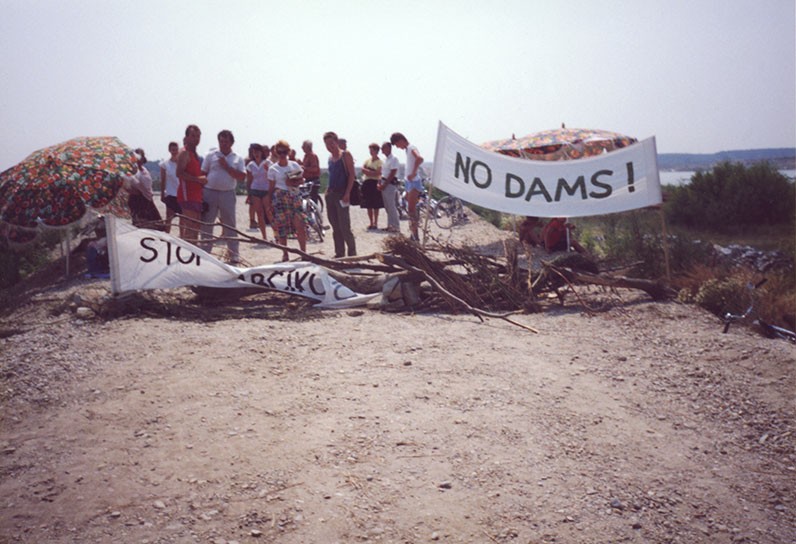
Wednesday, 13 April 2016, 6:30 p.m.
JÁNOS VARGHA
[Founder of Duna Kör]
The Danube Case in a Global Context
Presentation and talk with Axel Braun
Galeria Centralis of Vera and Donald Blinken Open Society Archives
Arany János utca 32, 1051 Budapest
An event of the POLITICISED LANDSCAPES program.
Janos Vargha's presentation discusses a selection of relevant topics that are related to dams worldwide. He will give overviews on history and politics of river engineering and hydropower development, scientific research and perception of social and ecological impacts of river regulation and damming as well as an introduction to river restoration versus hydropower development. Anti-dam movements, their success and failure, including the history and impacts of the World Commission on Dams (WCD) will be contextualised with the controversy about the Gabcikovo-Nagymaros Dam System. Furthermore he will refer to the recent hydropower development boom, its background and future impacts as well as the critical relation of climate change and hydropower development.
JÁNOS VARGHA
Environmentalist and photographer. He graduated in 1977 from the József Attila University, Szeged, with Master’s degree in biology. Since 1981 he has regularly published articles and delivered lectures about environmental issues of water management and water constructions. He is a founder of the Danube Circle, the first independent environmental protest group in the former communist block, recipient of the Right Livelihood Award (with the Danube Circle), the alternative Nobel-prize in 1985. In 1990, he was awarded with the Goldman Environmental Prize. He is the editor of a book, published in 1997, about the decision of the International Court of Justice in the Gabčíkovo-Nagymaros hydropower project’s case, and author of its chapter about hydropolitics. From 1998 he was the chief environmental advisor of the Hungarian government, but in 2000 he resigned from this position.
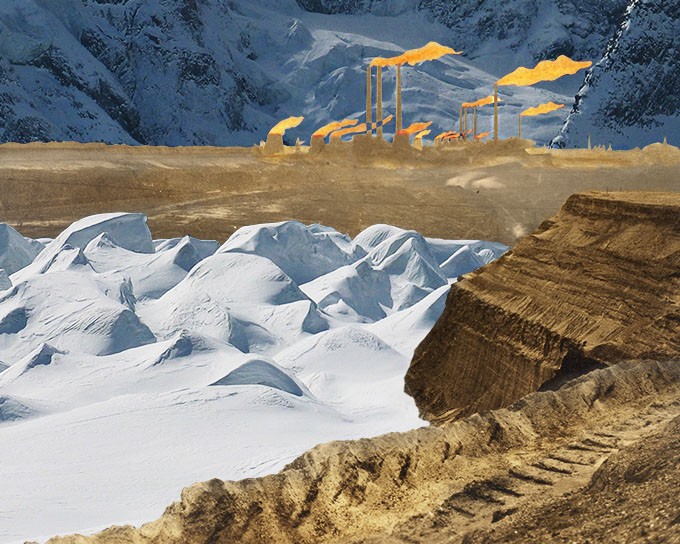
Thursday, 14 April 2016, 6:30 p.m.
ALEX FISCHER
[CEU, School of Public Policy and WWF Switzerland]
Political lobbying – how to effectively impact on a policy process
Presentation and talk with Axel Braun
Galeria Centralis of Vera and Donald Blinken Open Society Archives
Arany János utca 32, 1051 Budapest
An event of the POLITICISED LANDSCAPES program.
For some observers, political lobbying is a euphemism for dubious interactions between big business and corrupt politicians. Others believe that lobbying is an essential component of a lively representative democracy. In any case, more resources are invested every year in the management of relations between various organizations and political decision-makers.
In recent years, the NGO sector, too, has started to professionalize its relationships with the political world.
This presentation has three aims: First, to discuss what lobbying is and how it works. Second, to provide some insights from NGO lobbying. Third, to discuss issues related to ethics of lobbying.
ABOUT ALEX FISCHER
Alex Fischer works as a head of the public affairs unit of WWF Switzerland. In addition he kept his affiliation with Central European University as Associate Professor. He served as full-time faculty member at the Department of Public Policy from 2005 until 2007.
From September 2000 to August 2005, he worked at the Swiss Graduate School of Public Administration, IDHEAP, in Lausanne, Switzerland. In parallel, he has also taught foreign and European Politics at the Universities of Berne and Fribourg, Switzerland.
Collage: Axel Braun, 2016